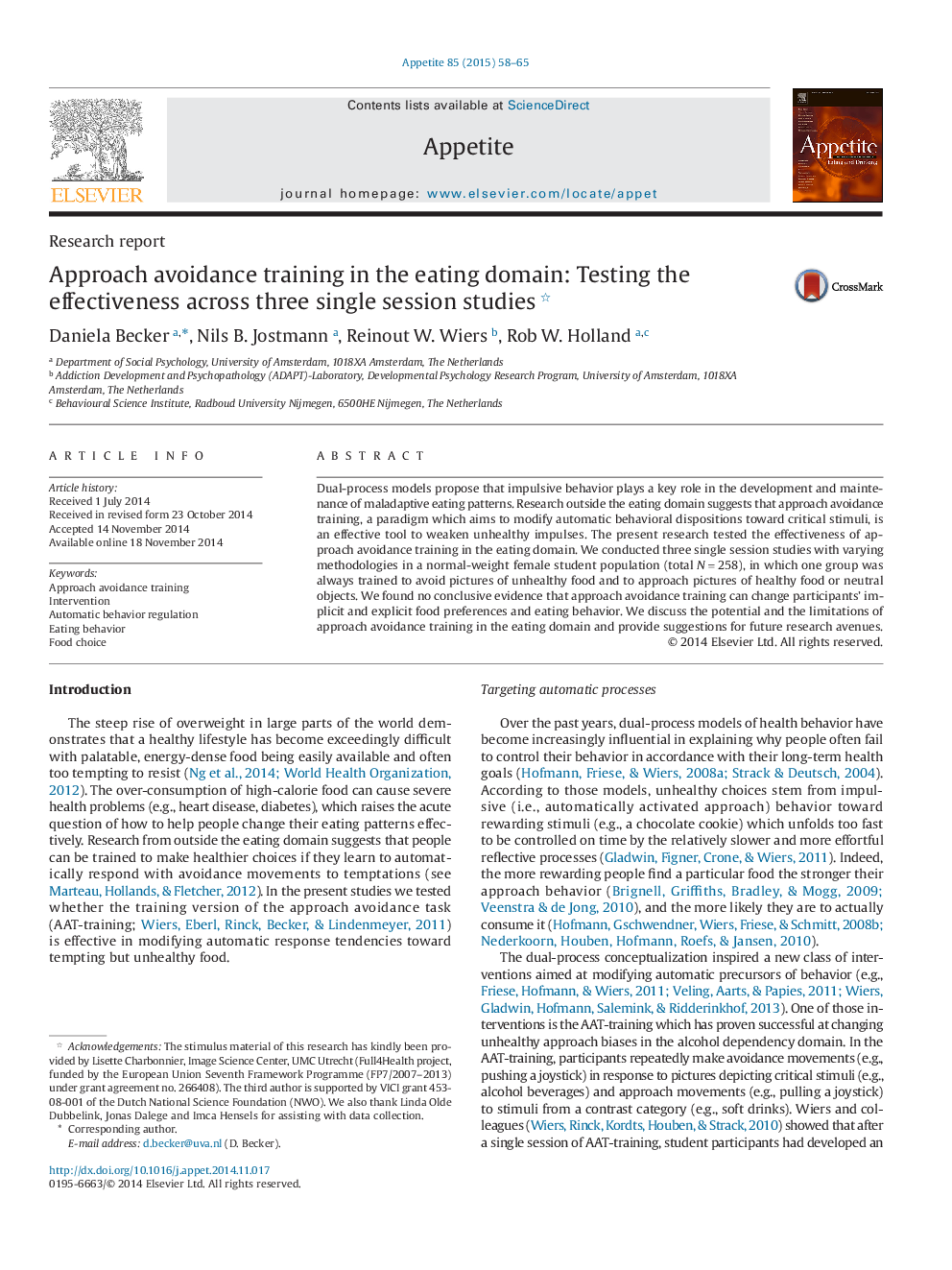| Article ID | Journal | Published Year | Pages | File Type |
|---|---|---|---|---|
| 7309394 | Appetite | 2015 | 8 Pages |
Abstract
Dual-process models propose that impulsive behavior plays a key role in the development and maintenance of maladaptive eating patterns. Research outside the eating domain suggests that approach avoidance training, a paradigm which aims to modify automatic behavioral dispositions toward critical stimuli, is an effective tool to weaken unhealthy impulses. The present research tested the effectiveness of approach avoidance training in the eating domain. We conducted three single session studies with varying methodologies in a normal-weight female student population (total Nâ=â258), in which one group was always trained to avoid pictures of unhealthy food and to approach pictures of healthy food or neutral objects. We found no conclusive evidence that approach avoidance training can change participants' implicit and explicit food preferences and eating behavior. We discuss the potential and the limitations of approach avoidance training in the eating domain and provide suggestions for future research avenues.
Related Topics
Life Sciences
Agricultural and Biological Sciences
Food Science
Authors
Daniela Becker, Nils B. Jostmann, Reinout W. Wiers, Rob W. Holland,
